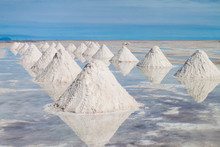On Thursday (20th April ), Chile’s President Gabriel Boric nationalized the country’s lithium industry. The country is the world’s second-largest producer of the metal essential for making electric vehicle batteries. The nationalization move is intended to boost the economy and protect its environment.
Electric vehicle (EV) manufacturers are facing a new obstacle in their efforts to obtain battery materials, due to a growing trend of countries safeguarding their natural resources. For instance, Mexico recently took control of its lithium deposits, while Indonesia halted exports of nickel ore, which is a crucial material for producing batteries, in 2020.
In the country that holds the second-largest reserves of lithium in the world, this decision will eventually result in the transfer of management of Chile's extensive lithium operations from leading industry players Sociedad Quimica Y Minera de Chile-SQM and Albemarle to a government-owned enterprise.
The government does not intend to terminate existing contracts but has expressed hope that companies would be receptive to state participation before their contracts expire. Albemarle and SQM, the world's top lithium producers, will reach their expiration dates in 2030 and 2043 respectively.
“This is an opportunity for economic growth that will be difficult to beat in the short term. Future lithium contracts would only be issued as public-private partnerships with state control” Boric said in an address televised nationwide.
Industry giant Albemarle stated that the declaration would not significantly affect their business and confirmed it would continue its expansion efforts.























